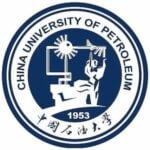
China University of Petroleum
About Company
China University of Petroleum (East China) is a national key university directly under the Ministry of Education, and one of the key universities under the national “211 Project” and the “985 Project Advantageous Discipline Innovation Platform” with a graduate school. It is an important base for cultivating high-level talents in petroleum and petrochemical industry, and is known as the cradle of petroleum science and technology and management talents, and has become a university with a focus on engineering, distinctive petroleum and petrochemical characteristics and coordinated development of multiple disciplines. In 2017 and 2022, the university will enter the ranks of national “double first-class” construction universities.
Tracing the history of the university, at the beginning of the founding of New China in 1953, the national economy was in urgent need of petroleum resources and professional talents for the development of petroleum industry. In this situation, based on the Department of Petroleum Engineering of Tsinghua University and the relevant faculties and conditions of famous universities such as Peking University, Tianjin University and Dalian Institute of Technology, Beijing Petroleum College was established as the first petroleum institution of higher education in New China, which was subordinated to the Ministry of Fuel Industry and was one of the eight famous colleges in Beijing at that time. In October 1960, the school was designated as a national key university, and in 1969, the school was moved to Dongying, Shandong Province, where the Shengli Oilfield is located, and renamed as East China Petroleum College. In 1997, the university entered the first batch of key universities under the “211 Project”, and in 2000, the university was transferred from China National Petroleum Corporation to the Ministry of Education, and in June 2000, the university established a graduate school with the approval of the Ministry of Education. In August 2004, the Ministry of Education approved the construction of the Qingdao campus of the University of Petroleum (East China), and in January 2005, the university changed its name to China University of Petroleum, and in August 2005, the Ministry of Education and the People’s Government of Shandong Province signed an agreement on the construction of China University of Petroleum (East China). In 2010, the university became one of the first 61 pilot universities to implement the “Excellent Engineer Education and Training Program” and one of the 32 universities to undertake the “Comprehensive Reform of Professional Degree Graduate Education”. In April 2014, the Ministry of Education signed an agreement with five major energy companies, including China National Petroleum Corporation, China Petroleum & Chemical Corporation, China National Offshore Oil Corporation, Shenhua Group Corporation and Shaanxi Yanchang Petroleum (Group) Co. In December, the Ministry of Education and the People’s Government of Shandong Province focused on jointly building China University of Petroleum (East China). 2021, the school’s registration was adjusted to Qingdao.
The university covers a total area of more than 5,000 mu, with a construction area of more than 1.3 million square meters, and has developed a “two campuses and one park” (Qingdao Tangdao Bay Campus, Guzhenkou Campus and Dongying Science and Education Park). The two campuses in Qingdao are located in Qingdao, the charming sailing capital and seaside city with high reputation, and the Dongying Science and Education Park is located in Dongying, Shandong, the center city of the Yellow River Delta, the city of ecology and oil. The two campuses are located in the “Blue and Yellow” national strategic key areas, while the two campuses in Qingdao are also located in the new national new area – Qingdao West Coast New Area, which was established in 2014. The university has a graduate school, School of Earth Science and Technology, School of Petroleum Engineering, School of Chemical Engineering, School of Mechanical and Electrical Engineering, School of Storage and Construction Engineering, School of Materials Science and Engineering, School of Shida Shaneng New Energy, School of Marine and Space Information, School of Control Science and Engineering, Qingdao School of Software, School of Computer Science and Technology, School of Science, School of Economics and Management, School of Foreign Languages, School of Grammar There are 16 teaching colleges (departments), such as College of Marxism, College of Physical Education, etc., as well as College of Auxiliary Studies, College of International Education, College of Distance Education and College of Continuing Education.
The major disciplines cover all fields of the petroleum and petrochemical industry, and the overall level of the main petroleum disciplines is in the leading position in China. There are 14 primary disciplines authorized for doctoral degree, 7 secondary disciplines authorized for doctoral degree with independent setting, 9 interdisciplinary disciplines authorized for doctoral degree with independent setting, 4 types of professional degree authorization categories for doctoral degree, 33 primary disciplines authorized for master’s degree, 15 professional degree authorization categories for master’s degree, 60 undergraduate enrollment majors, and 11 postdoctoral mobile stations. It has five national key disciplines, including mineral census and exploration, oil and gas well engineering, oil and gas field development engineering, chemical process, and oil and gas storage and transportation engineering, and two national key (cultivation) disciplines, including earth exploration and information technology, and industrial catalysis. Eight disciplines, including engineering, chemistry, material science, earth science, computer science, environment and ecology, general social science, and mathematics, are ranked in the top 1% of ESI global disciplines, among which engineering, chemistry, and earth science are ranked in the top 1 percentile of ESI global disciplines. Two first-class disciplines, Geological Resources and Geological Engineering and Petroleum and Natural Gas Engineering, have been selected for the national “double first-class” construction plan.
The university has a complete education system and a reasonable structure of various education levels, with more than 19,000 full-time undergraduate students, 10,000 graduate students and 700 international students. Since its establishment, the university has always adhered to the fundamental task of talent cultivation and made efforts to build a brand of talent cultivation quality, which has won a wide social reputation. In 2004, the university was awarded the honorary title of “National Advanced Employment Unit” by the State Council, and in 2011, it was selected as one of the 50 colleges and universities with typical experience in employment of graduates in China. In 2011, it was selected as one of the 50 national colleges and universities with typical experience in graduate employment.
The university has a high quality teaching team with high moral character, excellent business, reasonable structure and vitality. There are more than 1,700 teachers, including more than 1,200 professors and associate professors, and 395 doctoral supervisors. There are 26 academicians of the two academies (including double-appointed), Cheung Kong Scholar Distinguished Professors, National Outstanding Young Scientists Fund recipients, National “Ten Thousand Plan” Science and Technology Innovation Leaders, National “Hundred Million Talents Project” inductees, etc.; Cheung Kong Scholar Young Scholars, National Outstanding Young Scientists Fund recipients, National Outstanding Young Scientists Fund recipients, National Outstanding Young Scientists Fund recipients, National Outstanding Young Scientists Fund recipients, National Outstanding Young Scientists Fund recipients, National Outstanding Young Scientists Fund recipients, National Outstanding Young Scientists Fund recipients, and National Outstanding Young Scientists Fund recipients. The young scholars of Yangtze River, National Outstanding Young Scientists Fund, National “Ten Thousand People Plan” young talents, Ministry of Education “New Century Excellent Talent Support Program” selected 38 people; China Youth Science and Technology Award, Ministry of Education Young Teachers Award, Huo Yingdong Education Foundation 16 recipients of China Youth Science and Technology Award, Ministry of Education Young Teacher Award, Huo Yingdong Education Foundation Young Teacher Fund and Young Teacher Award; 86 recipients of Shandong Province Taishan Scholar and Shandong Province Outstanding Young Scientist Fund; 7 recipients of National Model Teacher, National Outstanding Teacher, National Teaching Master Award and National “Ten Thousand People Plan” Teaching Master; 1 innovative research group of National Natural Science Foundation of China, 3 innovative teams of Ministry of Education of Shandong Province and 1 innovative team of National Natural Science Foundation of China. There are 3 innovation teams of the Ministry of Education, 1 team of Taishan scholars in Shandong Province, 2 teams of Huang Danian-type teachers in national universities and 3 national teaching teams.
The university is an important base for scientific research in the petroleum and petrochemical industry, with strong strength in basic theoretical research and applied research, and ranks among the domestic leading level and international advanced level in more than 10 research fields. There are 41 national and provincial research platforms, including the National Key Laboratory of Deep Oil and Gas, the National Key Laboratory of Heavy Oil, the National Engineering Research Center of Offshore Physical Exploration and E&P Equipment, and the China-Saudi Arabia Joint Laboratory of Oil and Energy “One Belt, One Road”.
The university insists on opening up the school and constantly expands the social service field and development space, and has signed comprehensive cooperation agreements with more than 80 local governments and large enterprises and institutions in China. The university attaches importance to international exchange and cooperation, and has established substantial cooperation and exchange relations with more than 200 institutions of higher education and academic institutions in 50 countries and regions, such as the United States, France, Canada, Australia, the United Kingdom and Russia. More than one hundred famous experts and personalities have been employed as part-time professors, honorary professors and visiting professors of the university. In recent years, international cooperation and exchange programs have gradually increased, showing good prospects for development.
Over the past 70 years since the establishment of the university, the university has formed distinctive characteristics, and the strength and level of schooling have been continuously improved. In the new historical period, the university insists on characteristic development, connotative development and high-quality development, and is striving to be a world-class university in the field of energy with Chinese characteristics.







